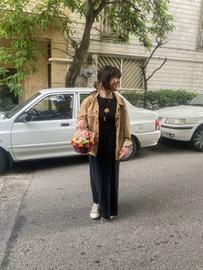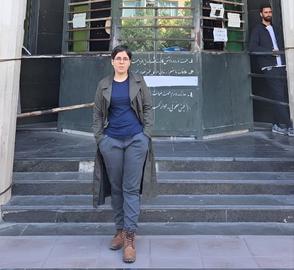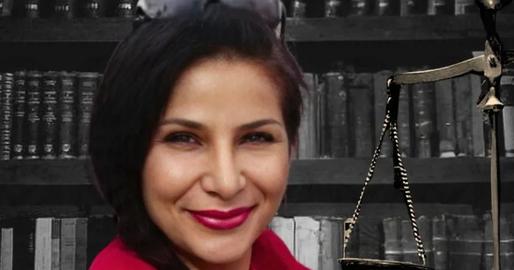In its 2018 book titled Profiles of Women Scientists in Asia, the Association of Academies and Societies of Sciences in Asia (AASSA) published biographies of 50 scientists, among them three Iranians. One of them was Professor Zahra Emam-Jomeh, a food scientist who had not received much attention by the Persian-language media until this book was published.
Nicknamed “Iran’s Marie Curie,” she is a professor of food science and engineering at the University of Tehran. With more than 400 papers published in international and Iranian scientific journals, Zahra Emam-Jomeh is a familiar name to the scientific community in her field.
Zahra Emam-Jomeh was born in 1968 in Tabriz, the capital of East Azerbaijan province. She finished her primary and middle schools there but attended high school in Tehran. She returned to her native city when she was accepted by the University of Tabriz to study food science and technology. She graduated in 1992.
She has three university-educated older brothers — one is a graduate in informatics, the second in medicine and the third in law. She says that his father encouraged her to study science but wanted her to become a doctor. Since childhood, however, she was interested in chemistry: “In my childhood there were several television programs about famous scientists such as Marie Curie, Louis Pasteur, Avicenna, etc. I was very impressed by them—especially by Marie Curie…She was my idol. Her courage and perseverance influenced me. She was one of the reasons why I chose France and chemistry-related subjects for my studies.”
After graduation from the University of Tabriz, she joined her brother in France where she received a master’s degree in food science and technology from Blaise Pascal University. Then she received a grant to continue her studies and obtained her PhD in 1998. For close to two years, she also did research for the French Institute of Research for Development but returned to Iran immediately after receiving her PhD.
“When I finished my studies in France, I had a very good job position there. Despite that, I decided to come back to my country because I thought there were many people like me in France, but very few in Iran,” she says.
In 1999, she was employed at the University of Tehran as an assistant professor and, in addition to teaching, she set up a laboratory for food technology research.
Zahra Emam-Jomeh rose rapidly and was promoted to full professor when she was only 37, one of the youngest full professors in Iranian academia. She also received many honors such as the best researcher of the University of Tehran, best researcher in the region of Tehran, best researcher in Iran and distinguished woman researcher of Iran.
Her research into food technology covers a vast area, including using nutraceutical products to help fight cancer, improve the immune system and detoxification. Her most important research, she says, is about pomegranate and camel milk, their bioactive compounds and preservation and use in nutraceutical products. Her articles have appeared in many international scientific journals and she has received honors from the international scientific community.
Nevertheless, she is well-aware of obstacles confronting women who want to become scientists. “When I entered my professional life I was relatively young and the challenges were too much,” she says. “The biggest one was that neither the scientific community nor the industrial environment trusted a young female scientist. I had to work 10 times harder to convince them that I am as good as – or even better than – my male colleagues. Sometimes I proposed to work without any contract – for free – just to convince the industry that I can complete my work as well as my colleagues. Even with my students, I spent more time competing with my male colleagues to win their trust.”
She advises young women looking for a career in science “not to be discouraged, to work hard to open some barriers and not to accept any evident or hidden discrimination against women. If a woman believes in her potential and strengths, she never can accept giving up her dreams and plans.”
Zahra Emam-Jomeh warns about the remaining obstacles confronting women scientists in Iran: “Local authorities and officials must change some discriminatory rules and ensure that educated women are employed. Educated women also must try to engage more seriously in social events and organizations to show women’s capacities and merits.”

























comments